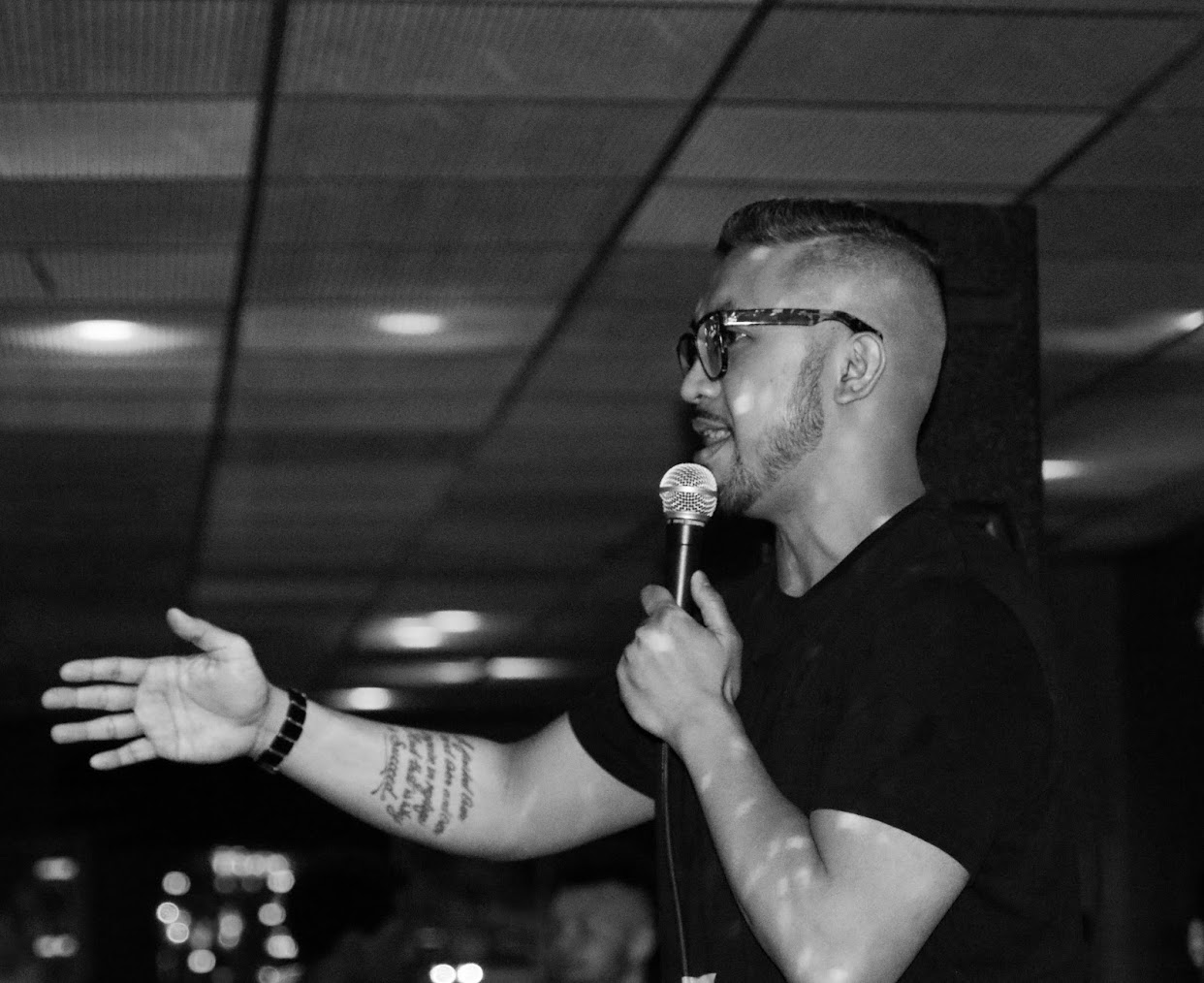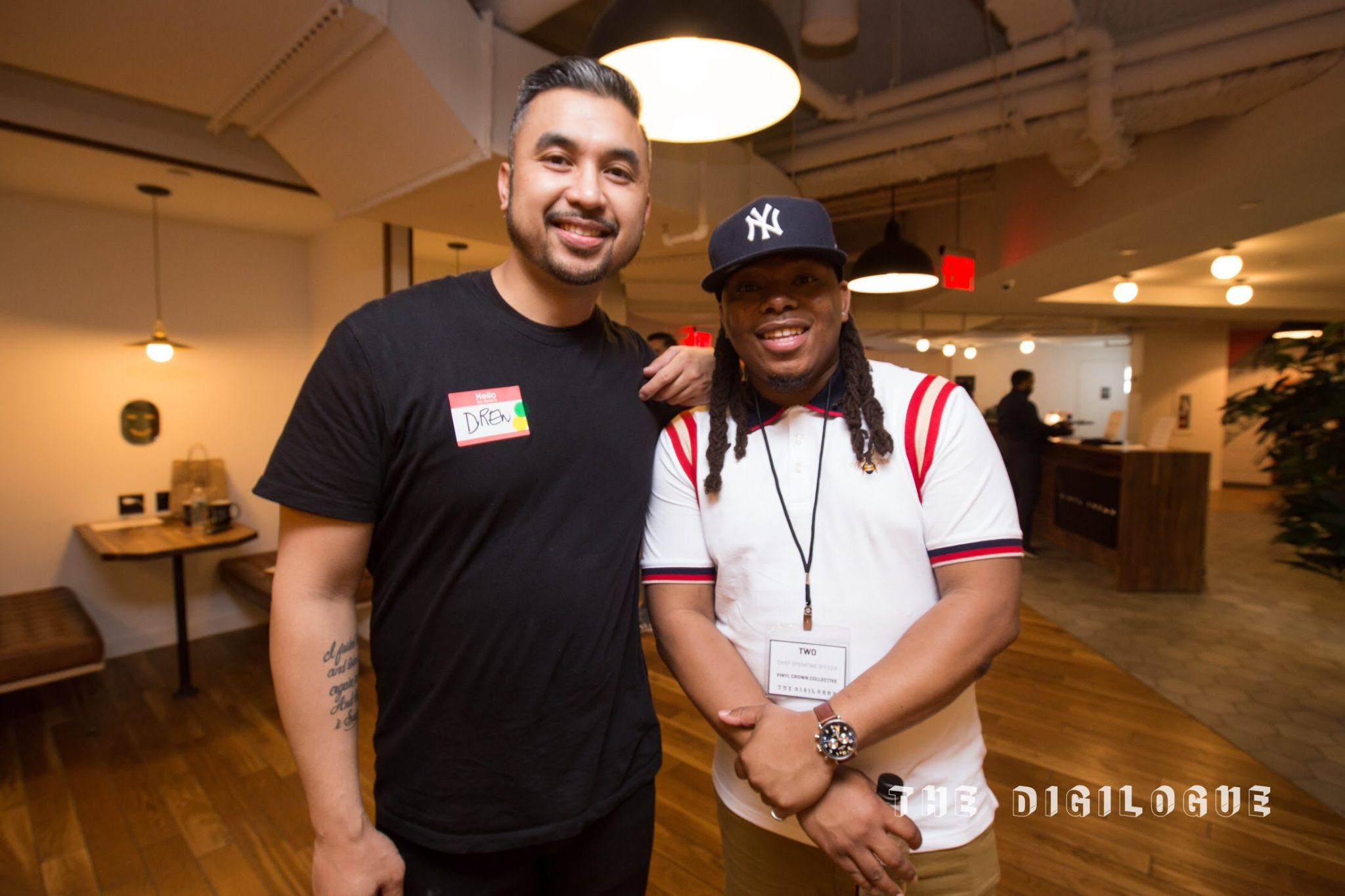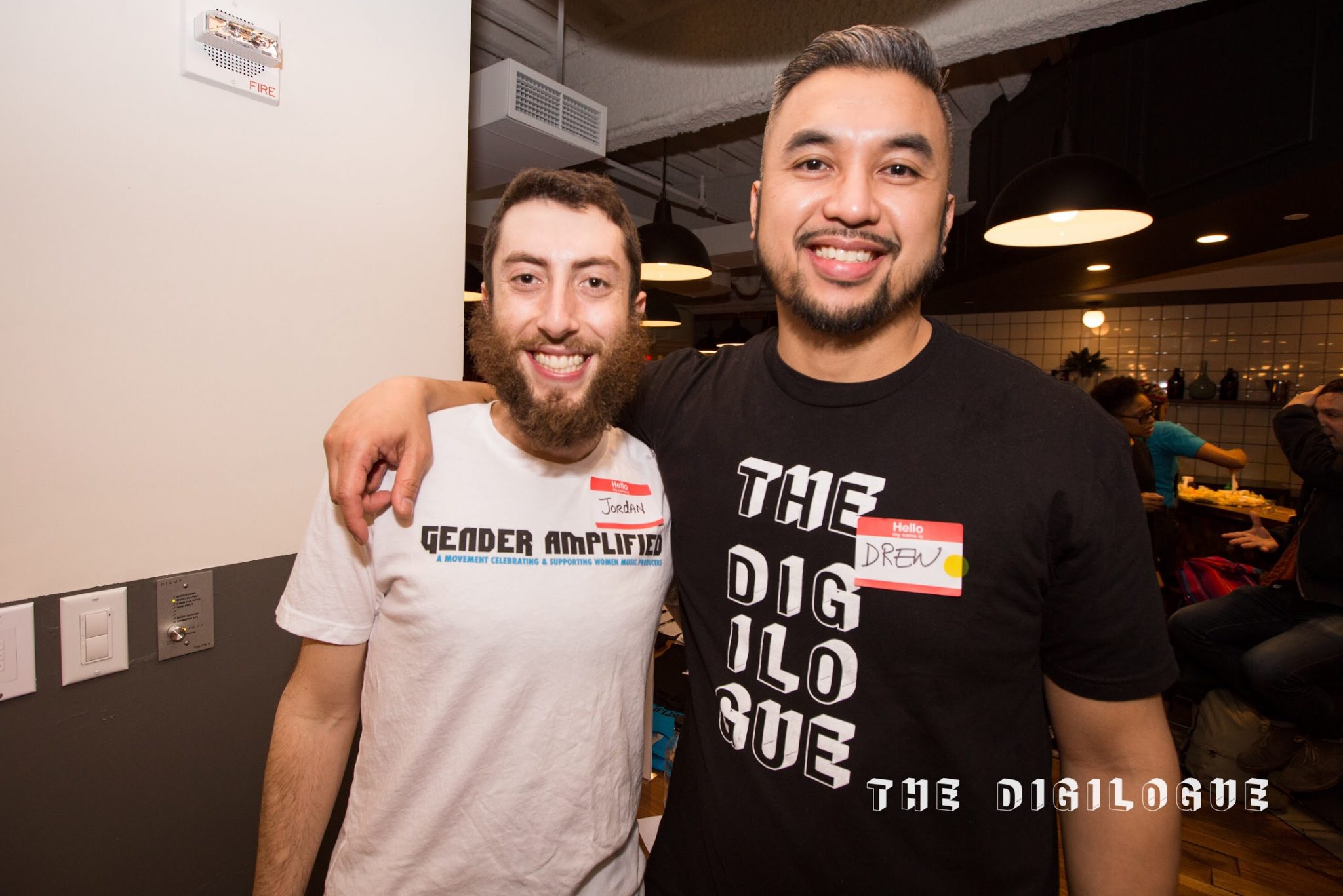Interview: The Digilogue – Drew de Leon
The Digilogue consists of a community driven by music in which they take on different initiatives to redefine the music and tech world. By connecting like-minded entrepreneurs and artists through events, The Digilogue has introduced people to different areas of music, tech, marketing, and more. The Digilogue community feels like home because of how everyone has one thing in common which is the fact that they’ve all started on their own and have built their brand up. The Digilogue teams up with key brands in music and technology to ensure that their panel discussions, masterclasses, and networking events are nothing less than progressive and beneficial. Drew De Leon, founder and brand director of Blank Label and The Digilogue, has used his past experiences and rejections as tokens of knowledge to share and grow with the music community. In this interview with Drew, we dive into topics from the music community, networking, and more.
Using a few words, how would you describe the importance of The Digilogue to artists in a dynamic industry?
“The Digilogue is a community. It’s a community over an industry. A lot of people see the music industry, but they don’t see the music community. We stress community because the industry thinks about the bottom line, we think about music and we think about transactions. With community we think about support, we think about guidance. That’s the thing too cause people’s qualities are different but they’re one and the same because we all work in music, but the music community brings the music industry. We’re trying to build a current community-oriented philosophy within a very humbled industry. Transactions are bottom line money which is important, but you lose the respect of artists being creative. I feel things always change for artists just because they get caught up in let’s say signing to a label, then they forget why they started creating music.”

For emerging artists, what do you think are some exciting companies to collaborate with?
“I think as an artist, Snapchat is long out from the cold with Snapchat Lens. This is new, so it’s more like 3D augmented reality features that you can create through Snapchat. It’s not the Snapchat geofilter, this is something you can create and then it lives continuously because you can unlock it on the lens for 24 hours but continue to use it as much as you can. This is strictly important if you’re an artist that goes on tour – you can put special lenses and just kind of, or even when you release a project. As a rapper, there’s this platform called RapChat, it’s like Snapchat for rappers. Basically, there are instrumentals you can choose on this app and then you can record yourself on it and it’s really cool. It’s not limited to rappers, but people that love the art of it, are lyrical, you know just rapping in general.”
What are some tips that rising artists should keep in mind when networking?
“In terms of networking, we definitely want to make sure that when you build a relationship that you’re not necessarily just asking for things in the beginning. You have to understand the temperature of who you’re talking to. Be impressionable, you want to build with this person, but it’s not just like “hey what’s up? This is what I’m offering”. It’s like “hey let’s get coffee, I want to know a little more about this person”. Build a relationship. Understand there’s a reason why you guys are building this relationship, but also how we can further that? So don’t make it transactional, make it intentional. Also, humanize your approach. As an approach, this person is not a robot. It’s like I want to send another follow-up email, but give that person a couple days, you don’t know what that person’s working on. When you do check in, say “hey just as a friendly reminder”, “if you’re free”. Just be persistent, but understanding that you just really have to get a sense of who you’re talking to.”
What inspired you to work on such a program like The Digilogue?
“The thing in this industry, independent artists, a lot of people went to me for resources. I just couldn’t do it to help everybody individually, so I wanted to create a platform that could help the masses in scale. I was just like you know what I’m not just going to keep this all this knowledge, I want to have my music family to access this as well.”
What are some digital marketing strategies you suggest?
“Digital Marketing strategies in terms for artists, I’d like to say there’s no cookie cutter strategy, that’s all I’m going to say. That’s one, you have to understand your audience, let’s say we do a rollout for an album, you want to just focus. Focus on content right now. I would push toward short-form content, like doing podcasts with different platforms, creating short BTS content on your creative process whether you’re in the studio, continue to tell your story, be authentic, not take too many stage opportunities like don’t make it feel like a full production. Stylize it where it feels raw. Then, also you can do different opportunities like an IG live. Talk to fans, get feedback on music. Use facebook live. I feel like a lot of focus on fan engagement is important in addition to creating content. Then all the fancy stuff is cool like if you’re a dark artist and don’t want to show your face. The most successful bands are the ones who really talk to their fans and are about their fans.”
What are some important things artists should keep in mind while “securing the bag” (reference to his one on one mentoring sessions)?
“I think one as a negotiator, what is a sponsorship? Understanding sponsorship opportunities, what you pitch them. Knowing what you’re going to be offering, what your leverage is versus like “I want to get a sponsorship”, but why? How does it benefit the brand? I think just as an artist a lot of people focus on like you gotta make the product is great, your music. But for example, different revenue streams from merch, right? Like, create a dope merch program around your music. Your margins are going to be so much higher just because you have control over it. Touring obviously is something you have to build out. I think in the short term, a strong merch program, focus on that because the tour takes about 2-3 years to actually start happening for any artist. You can put out like small merch pieces even as a new artist. I think that it’s something artists should work on from a revenue standpoint. Start talking to small brands, the baby brands that are kind of on the same wave or the same boat and see how you can leverage each other. Then use that as an example to bigger brands when you work with them as case studies. Like “hey, I worked with a small brand, this is what we did. Bigger brand, this is what we could do for you. Maybe you could sponsor us a few bucks?” You know, just like you can’t go for the big whale-like “hey, I want money”. You have to build a resume for it.”
It’s mentioned how The Digilogue encourages community involvement. What are some ways to get active in the community?
“I think when people come out to events and come consistently. I think that’s important. You want to be able to come out but also take the opportunities for the people you do connect, you know, to follow up. I think a lot of people can build a great contact, but they don’t follow up. You have to spread up your follow-up, you have to give people time to breathe. It’s a different class to networking in general. I say just coming out to events, being supportive online, sharing our content, sharing our events to people who don’t know about the community. A lot of growth has been due to like word of mouth. People posting about it, people sharing it. That’s probably the most official way of digital marketing you can really ask for. It’s giving that co-sign from someone that you trust.”
What are your thoughts on virtual reality and the effect it can have on someone’s work/career?
“I think VR has ways to go but can be effective for interactive experiences with fans. It’s not adopted by the masses but can be part of the strategy like creating a Behind the scenes tour experience VR. Cool things like that.”
